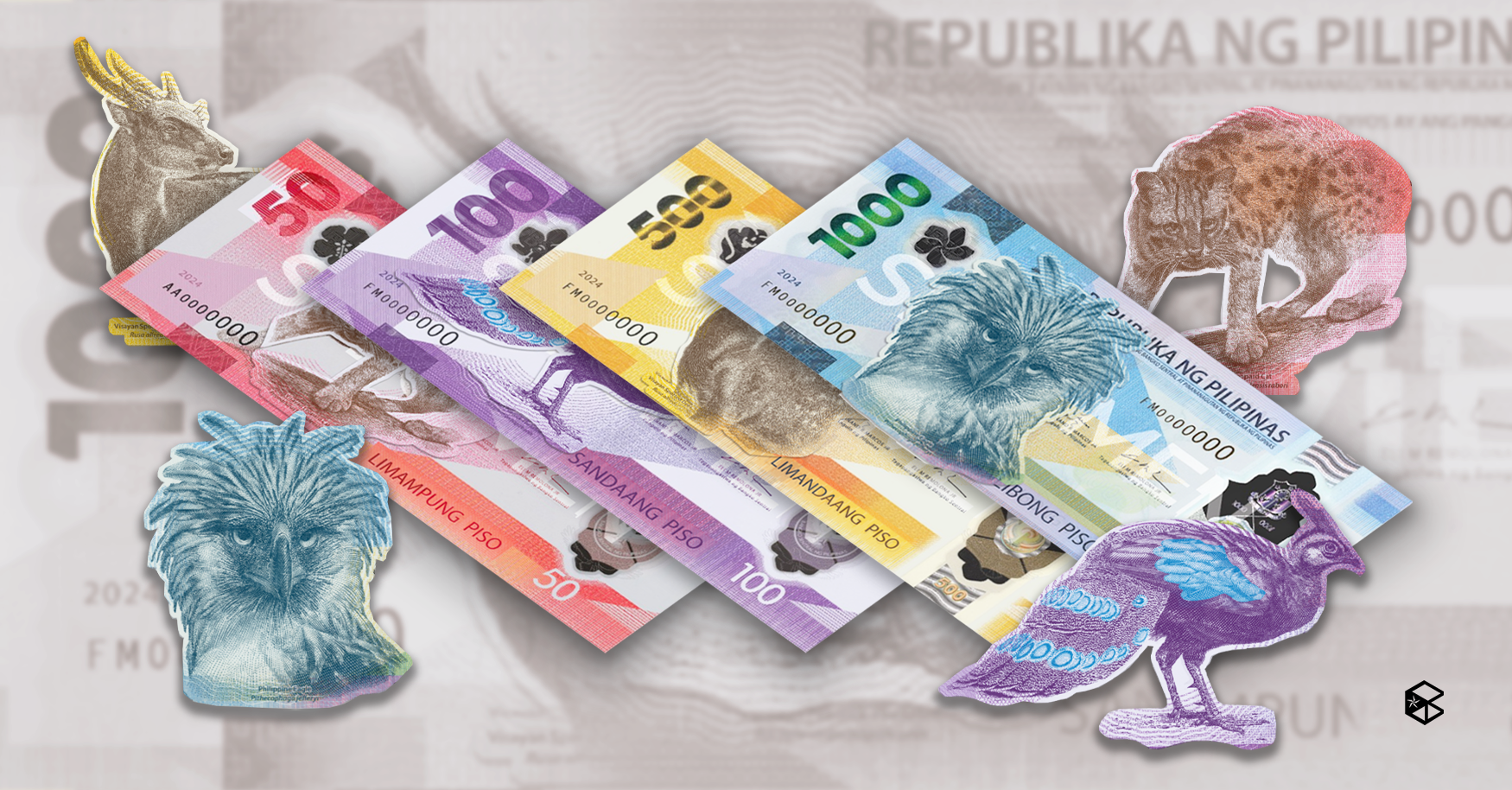The Banko Sentral ng Pilipinas (BSP) exhibited the new polymer banknote series on Dec. 19, 2024 to introduce a smarter, cleaner, and stronger form of Philippine currency. The BSP changed banknote designs in order to decrease counterfeiting cases and promote the country’s biodiversity, but in the revealed series, the material was also upgraded to foster sustainability.
During the ceremony in the Malacañan Palace, President Ferdinand Marcos Jr. expressed how the currency advancement “reflects the progress we are making as a Bagong Pilipinas—practical, innovative, and deeply meaningful.”
The series revealed Php 1000, Php 500, Php 100, and Php 50 banknotes, highlighting the country’s biodiversity in contrast to its paper counterpart which features national heroes.
With this shift, the country has joined over 40 countries including Australia, Canada, and Mexico, to name a few, in adopting polymer banknotes, showcasing a collective effort to address environmental concerns and enhance security from counterfeiting.
According to the central bank’s official website, the new banknote series features advanced security measures in comparison to the paper notes, offering improved protection against forgery. They also claimed that the Department of Health (DOH) confirmed that viruses and bacteria last for a shorter amount of time on the polymer material, promoting better hygiene.
Furthermore, BSP stated that the introduction of the banknotes contributes to sustainability as the material is proven to be two to five times more durable than its paper counterpart with an estimated lifespan of seven and a half years.
Additionally, the bank claimed that the bills are resistant to water, dirt, and oil to ensure better practicality for daily use.
A study by De La Salle University’s Center for Engineering and Sustainable Research Development in 2023, outsourced by BSP, also reported that the Php 1000 polymer note has a lower global warming potential (GWP) compared to the paper currency, positioning it as a positive step towards climate change action.
The new polymer banknote series offers a modernized currency that meets global standards while addressing practical, environmental, and security concerns.
“(The polymer banknotes) underscore the global trend toward this smarter, cleaner, and stronger alternative,” the BSP said.
Moreover, the Php 200 denomination was omitted from the polymer bills due to its lack of usage since its launch in 2010. The said bills will still be considered legal until it is unsuitable for recirculation.


